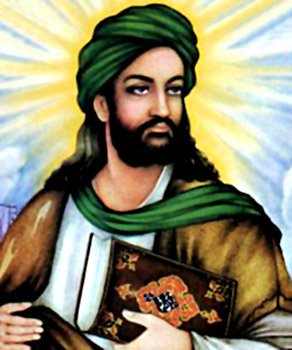 Prophets in Islam are believed to convey the message of God to man. It is believed in Islam that God makes his will known to men by prophets, and there have been a total of 124,000 prophets. Revelation was first given to Adam and later prophets have repeated the message. Twenty eight prophets are named in the Holy Quran. These prophets include Adam, Noah, Abraham, Lot, Moses, Isaac, Jacob, Ishmael, Joseph, David, Solomon and Job from the Old Testament. Jonah is the only writing prophet mentioned. From the New Testament, the prophets mentioned are Jesus Christ, Zacharias and John the Baptist. Some were sent to Arabia, Hud to `Ad, a people of whom nothing is known, Salih to Thamud, a well-known Nabataean tribe, and Shu`aib, who has been identified both with Jethro and Hobab, to Midian.
Prophets in Islam are believed to convey the message of God to man. It is believed in Islam that God makes his will known to men by prophets, and there have been a total of 124,000 prophets. Revelation was first given to Adam and later prophets have repeated the message. Twenty eight prophets are named in the Holy Quran. These prophets include Adam, Noah, Abraham, Lot, Moses, Isaac, Jacob, Ishmael, Joseph, David, Solomon and Job from the Old Testament. Jonah is the only writing prophet mentioned. From the New Testament, the prophets mentioned are Jesus Christ, Zacharias and John the Baptist. Some were sent to Arabia, Hud to `Ad, a people of whom nothing is known, Salih to Thamud, a well-known Nabataean tribe, and Shu`aib, who has been identified both with Jethro and Hobab, to Midian.
Among the prophets in Islam, two classes are identified. On the one hand there are those who introduced a new law including religious, legal, and social ordinances, and these prophets are also called apostles. These apostles are Adam, Noah, Abraham, Moses, Jesus and Muhammad. The others only repeated the message of their predecessors. A hundred and four revealed books have been given to prophets, ten each to Adam and Abraham, fifty to Seth, thirty to Enoch, one to Moses (the Law- Tawrat), one to David (Zabur-Psalms), one to Jesus (Gospel-Injil), and the Quran to Prophet Muhammad.
Muslims believe in the earlier prophets because Muhammad authenticated them. The accepted belief is that they cannot sin. The name of a prophet is always followed by the benediction, "on him and on our prophet be peace". Since God is one, each prophet preached the same ideas and spread the teachings of Islam. The prophets guided the people on how to worship God and live their lives. Each prophet also spoke of the final law-bearing Prophet, Muhammad. It is held by Islam that God sent a number of messengers to every nation to preach to specific groups of people, and it was finally the Prophet Muhammad as a seal to sum up and define the final message of God to the world. Prophet Muhammad is called the seal of the prophets, which is taken to mean that there can be no prophet after him for with him God has given men the perfect religion. Prophet Muhammad, it may be said, is at the centre of religion; his is the last word in faith; he is the first, the last, the gatherer (of men at the judgment), the beloved in whom God is well pleased to whom He has granted the right of intercession. God said to him, "I shall not be mentioned unless you are mentioned with Me, I have made you the first of the prophets to be created and the last to be sent". Thus, Prophet Muhammad is the most important among the various prophets in Islam.









